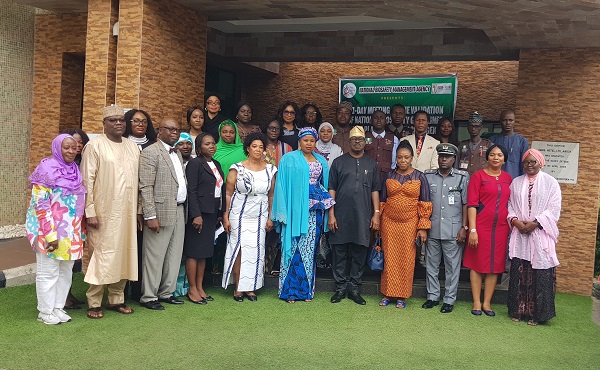
Stakeholders in Nigeria’s biotechnology and biosafety sector have validated and adopted the draft national guidelines on genetically modified plants with stacked genes in the country.
Speaking at the validation workshop today (July 25, 2022) in Abuja, the director-general of the National Biosafety Management Agency (NBMA), Dr. Rufus Ebegba, said the national document will serve as a guideline for the approval of genetically modified crops with more than one gene of insert submitted to the agency.
According to him, the National Biosafety Guideline on Stacked Genes developed by the agency and subjected to various stakeholder review sessions will guide regulation procedures for application of biosafety permit to ensure the GM product is safe for human consumption. Also, it will ensure that there are no negative impacts on the environment before approval is granted for its release.
“Over the past one year, the NBMA developed a guideline ‘National Biosafety Guideline on Stacked Genes’. These guidelines were developed with the understanding that not all genetically modified organisms contain only one gene of insert. If it is more than one gene of insert then it is known as ‘stacked gene’.
“The essence of these guidelines is to ensure that those genes that are inserted into these GM products do not alter the composition of the organisms substantially, particularly in a negative form.
“So, these guidelines are to guide applications and submissions so that products submitted do not have any harmful impact for human consumption, animals and generally. [One of the things it guarantees is] prevention of manifestations that might cause allergy or be toxic for human consumption or alter the environmental behaviour of the organism,” he said.
Earlier in his virtual remarks, the principal programme officer, African Union Development Agency- New Partnership for Africa’s Development (AUDA-NEPAD), Samuel Timpo, commended Nigeria and NBMA for its best practices in coming up with regulatory guidelines that meets international standards for its activities.
According to him, Nigeria’s gene editing guidelines as described by global experts show overall efficiency, accountability and transparency in all relevant regulations and that the guidelines aligned well with the majority of international guidelines for gene editing.
Timpo further said that world standard guideline was an outcome of the NBMA and stakeholders working overtime to produce quality administrative guidelines.
He congratulated the agency for coming up with yet another guideline that can show other member states an example that they may consider adapting to their national processes.
Similarly, the deputy director, agricultural biotechnology department, National Biotechnology Development Agency (NABDA), Dr. Rose Gidado, described the document validation as ‘good development and progress made in Nigeria’s biotechnology application process’.
She posited that though some other nations like Kenya, Malawi and others countries in Africa have joined the league of nations in having a biosafety framework in place; however, they have gone this far.
“So, we now have guidelines in Nigeria that can ensure risk management and risk assessment of genetically modified crops that have stacked genes. This are, of course, crops that have more than one gene [like the case of the TELA Maize that’s already been approved for general and environmental release.
“So, it is stacked gene because the gene in it is more than two. We have the gene for fall armyworm resistance and for drought tolerance. The stack gene actually strengthens the crop against insect resistance to the gene of insert,” she said.
Gidado, the country coordinator, Open Forum on Agricultural Biotechnology (OFAB), Nigeria chapter, said the guideline is to ensure the highest level of safety is observed in the release and consumption of these products of biotechnology.
“The validation of this document is going to have a positive impact on building trust. It means that the NBMA knows what it is doing and doing it according to international best practices.
“This document was reviewed some months ago and after our country review, it was subjected to international review. It was taken to experts out there to go through what Nigeria has done. Is it in line? Is it in compliance with the Cartagena Protocol? I think they found it worthy and they made their own inputs. So today, we’re endorsing it.
“So, it means that we are really ready in terms of safety because it’s actually meant to enhance safety, assess risk, manage risk and mitigate them.
“This is to repose confidence in the populace and people, consumers and among farmers that these things follow all the safety protocols and [have] passed through all the necessary regulations before being released for feed and consumption,” she added.
Stakeholders present at the meeting included officials of the Nigeria Customs Service (NCS), National Agricultural Seed Council (NASC), Nigeria Agricultural Quarantine Service (NAQS), NABDA, OFAB, AUDA-NEPAD, Program for Biosafety Systems (PBS), University of Abuja, Federal Competition, Consumer Protection Commission (FCCPC) amongst others.


